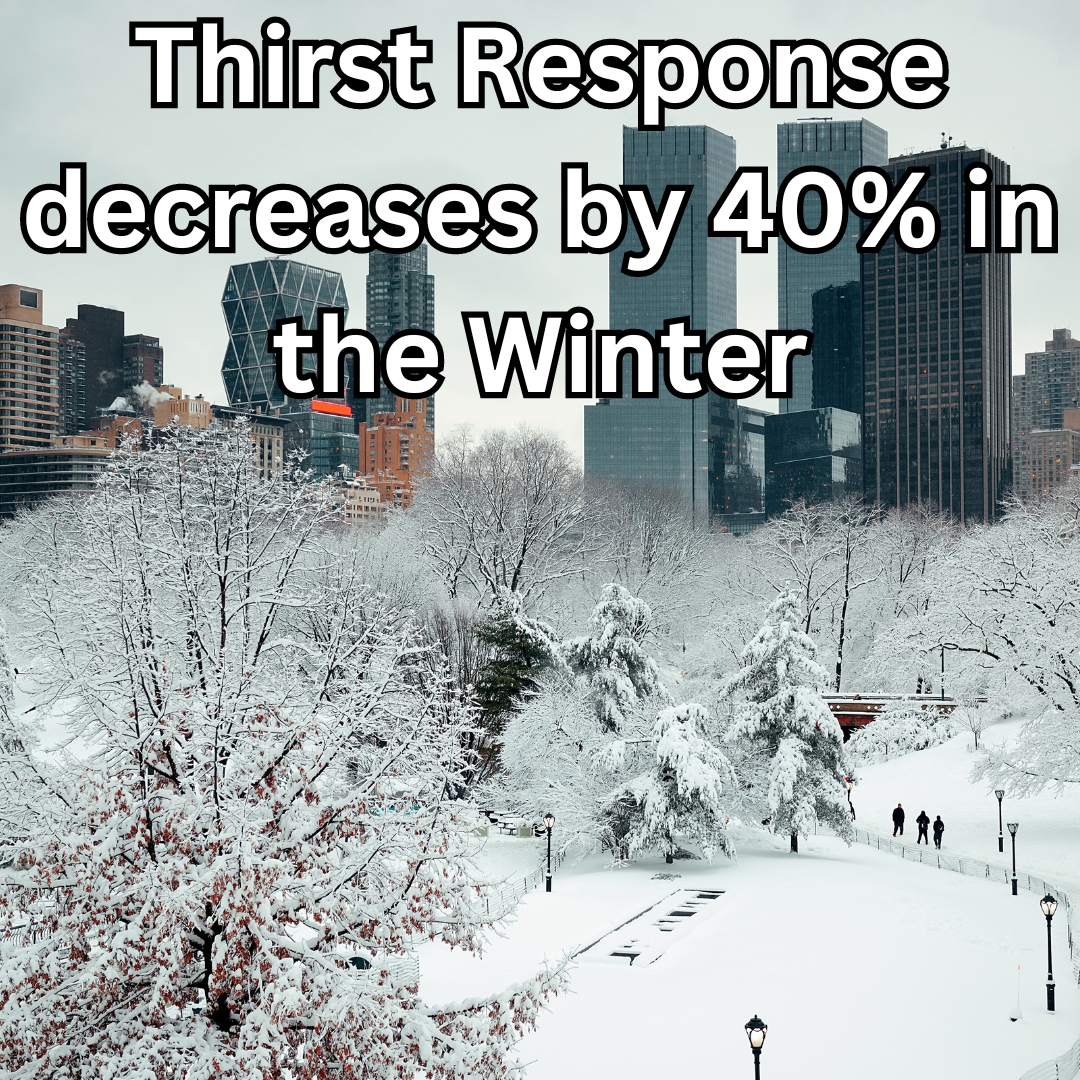Introduction: As the winter chill sets in across the country and the temperatures drop rapidly, our bodies undergo various changes to adapt to the cold weather. One such change that often goes unnoticed is the decrease in thirst response. Contrary to popular belief, staying hydrated is just as crucial in the winter months as it is during the scorching summer heat. In this blog post, we will explore the reasons behind the decreased thirst response during winter and emphasize the importance of maintaining hydration in cold weather.
Understanding Thirst Response in Winter: Our bodies have a sophisticated system for regulating fluid balance, and thirst is a key component of this mechanism. However, during winter, the sensation of thirst tends to diminish. This phenomenon can be attributed to several factors:
- Cold Weather and Reduced Sweating: In winter, we tend to sweat less compared to the warmer months. With reduced sweating, the body loses less fluid, leading to a decreased need for immediate rehydration.
- Dry Air and Increased Evaporation: Winter air is often dry, and the increased evaporation from our skin can contribute to the perception of reduced thirst. The body may not signal the need for water as strongly when the air is less humid.
- Cold-Induced Diuresis: Exposure to cold temperatures can lead to an increase in urine production, a process known as cold-induced diuresis. This can further contribute to dehydration, even though the sensation of thirst may not be as pronounced.
- Warmth Preservation: The body knows that exposing itself to cold temperatures will lead to an increase in heart rate. Similar to how bears hibernate, our body has a natural tendency to opt for staying warm and reserving the fuel we have stored during the winter. This is why it’s sooooo hard to get out of bed on a cold morning and go to the fridge to get water. Bedside water dispensers are one way to combat this and rehydrate from the warmth of your bed.
Importance of Winter Hydration: While the body’s thirst response may be less prominent in winter, the need for adequate hydration remains essential. Here are some reasons why maintaining hydration during cold months is crucial:
- Dehydration Risks: The decreased thirst response may lead individuals to underestimate their fluid needs, putting them at risk of dehydration. Dehydration can affect various bodily functions, including cognitive performance, immune function, and overall well-being.
- Skin Health: Cold and dry air can take a toll on the skin. Staying well-hydrated helps maintain skin elasticity and moisture, preventing issues like dryness and irritation.
- Immune Support: Proper hydration is vital for a well-functioning immune system. Dehydration can compromise the immune response, making individuals more susceptible to winter illnesses. This is part of the reason we tend to get sick more in the winter! If you’re sick, it’s important to emphasize rest and rehydration. Products like HydraLamp can help aid that process so you can rest and recover at the same time.
Tips for Staying Hydrated in Winter: To ensure adequate hydration during the winter months, consider the following tips:
- Drink Water Regularly: Even if you don’t feel as thirsty, make a conscious effort to drink water throughout the day. Adding flavor to your water or making water sources more convenient can help. Check out HID SIPS website and blog for more tips and tricks.
- Include Hydrating Foods: Incorporate hydrating foods with high water content, such as fruits and vegetables, into your winter diet.
- Use Humidifiers: Adding moisture to the air with humidifiers can help combat the drying effects of winter and support overall hydration.
Conclusion: As the winter season unfolds, it’s crucial to recognize the changes in our body’s thirst response and take proactive measures to stay hydrated. By understanding the factors contributing to decreased thirst in winter and prioritizing hydration, we can promote overall health and well-being during the colder months. Remember, even when the weather is cold, your body still needs the nourishment of water to function at its best.

